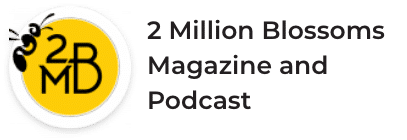As a person who has worked from home for the past 17 years, I listen to a LOT of podcasts and audiobooks. I mostly listen when I’m working on things that are purely visual and don’t require the verbal part of my brain. Since that’s a good portion of my work as a painter and science illustrator, I can work my way through entire podcasts and books pretty quickly. I also pick up library books a couple times a month, and watch TV, and catch up on phone calls when I’m walking the dog. So, my brain stays pretty busy—which is not surprising, since I love to learn. It’s part of the reason I became a science illustrator in the first place.
One of the books I’ve been reading lately is The Artist’s Way by Julia Cameron. Two artist friends, Elizabeth Barlow and Molly Martin, recommended it to me last year on separate occasions. Both said that they had gotten a lot out of it, but that I should prepare to commit to a fair bit of work. I decided to wait until after the holidays to start reading it—which was a good decision, since my mother-in-law gave me a copy for Christmas.
On New Year’s Day, I cracked it open and began the three-month writing program. Every day, I write three stream-of-consciousness pages called the Morning Pages (though I generally write later in the day, because I am not a morning person). The book also recommends a once-a-week Artist Date, which is time spent alone doing something that makes me feel inspired/creative. So far, the exercises and writing prompts have been interesting and thought-provoking, and it’s been a good way to get back into a daily creative practice. But there’s one exercise that has stood out to me: reading deprivation.
Reading deprivation is exactly what it sounds like—going without reading, in this case for a week. Cameron says this is because we artists tend to saturate ourselves with words, crowding out the world around us. Reading this, I felt a jolt of recognition. Some days, I find myself constantly listening or reading, while I’m eating breakfast, doing dishes, walking the dog, even listening to the news while driving. It means my brain is never getting a break from other people’s ideas, thoughts, and words. So, as hard as it was, I did a modified version of the week of reading deprivation. I didn’t read library books or listen to podcasts. I only watched a bit of TV (to keep me awake while folding laundry). I walked the dog while just…looking around me. I was even particular about what music I listened to, switching to classical music in the car and at home. And actually, it was pretty nice. Things felt calmer, less urgent, and I wasn’t annoyed about being interrupted in the middle of listening to a podcast episode. I talked to neighbors instead of waving at them while talking on my phone. I noticed the manzanitas blooming.
What’s interesting about all of this is that the whole point of my pollinator-themed paintings is that I want people to look at the world around them and notice what is happening—seasons shifting, bees and butterflies visiting flowers, plants blooming and fruiting and dying back. But I wasn’t even taking my own advice. I was too busy talking on the phone, or listening to a podcast about squirrels (thank you, Ologies!), or reading a new release from the library. The thing is, I really, really like all these things. But it was good for me to take a short little break from them; I even had some good ideas while walking the dog. My daily writing also took some of the time that I would normally spend reading/watching TV/scrolling on my phone, and it feels nice to do something creative every day.
I’ve been back to my regular media consumption habits for a couple of weeks now, and have read and listened to some really interesting and inspiring things. But I’m also trying to work in a little bit of time each day (or at least throughout the week) for quiet time, to clear out some space for my own ideas.


